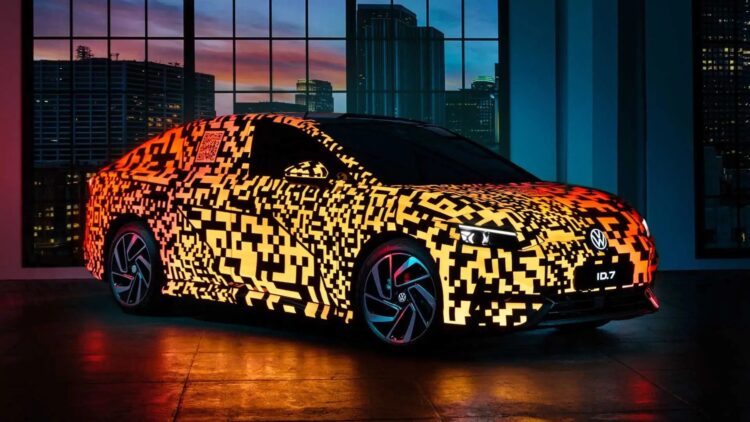Volkswagen has set its sights on the future of mobility with an innovative new engine technology: hydrogen fuel cells. Though electric vehicles (EVs) have been the center of green mobility discussions, the German car manufacturer is going a step further.
Thanks to its cooperation with Kraftwerk Tubes, Volkswagen is working on an innovative hydrogen fuel cell system that is likely to extend driving ranges, reduce refueling times, and provide an efficient and clean solution to conventional internal combustion engines.
But why hydrogen, and what makes this type of transport “better” than electric? Now, let us see what is in the pipeline for Volkswagen.
Hydrogen fuel cells: a game-changer for Volkswagen’s future mobility
Of course, electric vehicles have brought a lot to the table, but hydrogen fuel cells are a different story entirely; they have the potential to outcompete battery-electric vehicles. Volkswagen’s newest hydrogen offering might take the limits of range to a whole new level.
The vehicle they are currently working on, which can likely have a hydrogen fuel cell stack, targets a remarkable range of 1,243 miles on a tank. This is much beyond the range capacity of most of the EVs that are currently in the market.
The main advantage of hydrogen is that it can generate electric current without the use of bulky and heavy batteries. However, a chemical reaction between hydrogen and oxygen produces power in hydrogen fuel cells.
This reaction forms only water and hence forms one of the least pollutants compared to combustion engines. With a potential for higher range and faster refueling times, hydrogen vehicles are an interesting competitor to battery electric vehicles, particularly in regions that require extended mileage capability.
The most significant change that Volkswagen intends to introduce is the change of the polymer membrane fuel cell technology that many automakers, including Toyota and Hyundai, are using. However, Volkswagen’s new system will use a more affordable ceramic membrane.
This could significantly minimize the cost of the fuel cell stack, thus expanding the market for hydrogen-powered vehicles and making it easier for the average citizen to acquire one. Moreover, the new system offers consumers flexibility in terms of choice, according to Volkswagen.
The fuel cell technology aims to enable car owners to easily replace their gasoline and install the hydrogen system without a complicated conversion kit. Such high simplicity and ease could extend the transition to hydrogen-powered automobiles even more quickly, providing a smoother shift from conventional vehicles for the average driver.
Hydrogen cars vs. EVs: why Volkswagen sees hydrogen as a cost-effective alternative
Volkswagen’s Chief Executive, Thomas Schäfer, has been incredibly vocal about how hydrogen could be a cheaper solution for electric cars. Although the market share of EVs is growing globally, two main barriers that have not been solved on a large scale are the expensive cost of manufacturing large batteries and the charging infrastructure problem.
Hydrogen vehicles are still said to be more cost-effective to manufacture, especially with innovations in fuel cells. Schäfer has observed that hydrogen may be a better prospect for passenger vehicles, especially when charging stations are scarce or in long-distance driving conditions.
Given the growth in the number of hydrogen fueling stations and the short refueling times of vehicles designed to run on hydrogen, the case for hydrogen as a less expensive and time-consuming solution to battery-electric vehicles intensifies. The lower reliance on large batteries is also a possible solution to the current resource scarcity problem affecting the EV business.
However, with this daring leap into hydrogen, Volkswagen has been keen to explain that they will not ditch electric cars entirely. The automaker intends to forge ahead with production of electric cars in addition to hydrogen fuel cell cars. The future of Volkswagen’s fleet will embrace both technologies, and consumers will be free to opt for any of the two.
The future of hydrogen: Will it dominate the transportation industry?
The decision to develop hydrogen technology parallel to EVs is fraught with prudential reasons consistent with Volkswagen’s political vision of environmental sustainability. Hydrogen vehicles and electric cars each have advantages and disadvantages.
By investing in both, Volkswagen guarantees that it stays on top of the change toward cleaner transportation. Whether consumers opt for the long-range hydrogen vehicle or an electric vehicle with the charging infrastructure more readily available, the company is becoming dominant in both markets.
Volkswagen’s hydrogen fuel cell project is a positive indication for the automotive industry. While the technology is still in its early stages, its potential benefits are greater range, quicker recharging, and a non-renewable energy source than conventional fuels.
However, as the infrastructure for hydrogen increases and the costs come down, we may see hydrogen cars as commonplace on the roads shortly. For now, Volkswagen is proving that there are many ways to build a sustainable automotive future.
While the company is still trying to perfect its hydrogen fuel cell technology, seeing how this new engine will bring competitiveness to get the best, most efficient, and most environmentally friendly transport system would be interesting.

